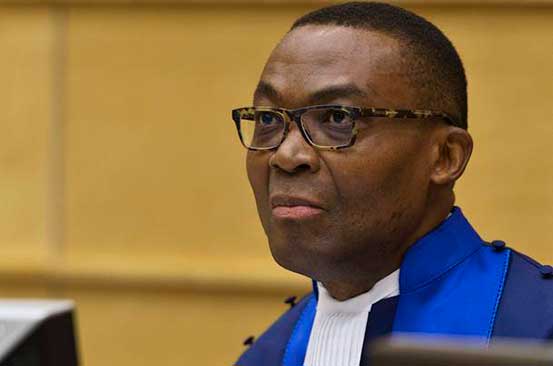×
The Standard e-Paper
Home To Bold Columnists

THE HAGUE: Presiding judge in the case against Deputy President William Ruto at the International Criminal Court issued yet another strong warning against alleged bullying of the court by the Kenyan public.
In a warning delivered during a status conference for Ruto’s co-accused Joshua arap Sang, Chile Eboe-Osuji, the Nigerian judge, said the court is not impressed by the “unending stream of clamour” through the Kenyan media to influence the outcome of the case.